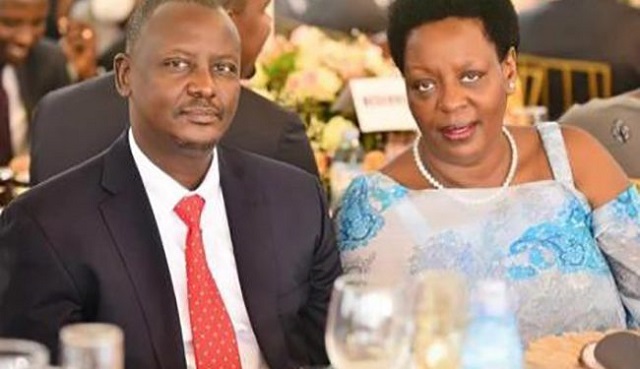
Kampala, Uganda | THE INDEPENDENT | High Court Judge Isaac Muwata has ruled that physical exhibits in criminal trials can only be tendered by the individual who recovered them from the crime scene or any other relevant location. This ruling, delivered on Thursday, arose during the trial of Molly Katanga, who is accused of murdering her husband, businessman Henry Katanga.
The Acting Director of Forensic Services in the Uganda Police Force, Andrew Kizimura Mubiru, testified that he conducted a DNA examination of the deceased and matched it with Molly Katanga and her two daughters to connect them to the exhibits recovered. He mentioned that he received a total of 23 exhibits, including both biological and non-biological items.
However, when the prosecution requested that the exhibits be admitted in court, the defense objected, arguing that Mubiru was not the one who had recovered the items from the crime scene or other locations, such as IHK Hospital, where Katanga was first admitted. The defense contended that this could break the chain of evidence, and therefore, only the individuals who recovered the items should tender them in court to maintain the integrity and admissibility of the evidence.
Judge Muwata agreed with the defense, ruling that to ensure a clear and verifiable chain of custody, only the person who recovered the evidence can present it in court. The physical evidence, which includes items such as dresses, sticks, bedsheets, broom, hair stretches, gauze, and bandage swabs from the crime scene, can only be tendered by the person who recovered them.
Furthermore, the judge ruled that six police forms sent to Mubiru requesting him to carry out DNA examinations cannot be admitted as evidence because Mubiru was not the one who prepared them. Most of these items were recovered from the crime scene and during the postmortem by the Scene of Crime Officer, who has not yet testified.
The prosecution argued that Mubiru and others who are yet to testify had collectively handled the evidence and believed that Mubiru was competent to present it, given his involvement in the process and the fact that the exhibits bear the stamp of the laboratory he heads. However, Judge Muwata emphasized that the chain of evidence must be strictly followed from the time of recovery to tendering to ensure integrity.
Mubiru’s report, however, has been tendered as an exhibit. The judge explained that the said items would be marked and identified until the witnesses who recovered them came forward to testify and tender them as exhibits. “It, therefore, follows that a chain or evidence has to be followed before the exhibits are admitted right from the time of recovery to the tendering,” said Muwata.
The defense lawyers also requested several critical documents from the prosecution, which they had requested as early as May 29, 2024. Despite several follow-ups, the defense has not received these materials, which they argue is infringing on their right to a fair hearing. They expressed readiness to cross-examine Mubiru within ten days if they received the materials.
On the other hand, the prosecution argued that their obligation is limited to items that are presented as evidence and that the defense is asking for documents to build their case, which are not in the possession of the state. Assistant Director of Public Prosecutions Samalie Wakooli emphasized that they would only provide what Mubiru testified about in his report. The prosecution also suggested that the ten-day adjournment request was intended to delay the trial.
Judge Muwata adjourned the case to September 10, 2024.
Molly Katanga is jointly accused with her two daughters, Patricia Kankwanzi and Martha Nkwanzi, who are charged with tampering with the murder scene to conceal valuable evidence. The family’s shamba boy, George Amanyire, and a nursing officer, Charles Otai, have also been charged with being accessories after the fact of murder.
The crime allegedly took place on November 2, 2023, in Mbuya, Chwa II, Nakawa Division, Kampala, where Molly is accused of fatally shooting her husband, Henry Katanga. The defense team comprises lawyers Elison Karuhanga, Macdusman Kabega, Bruce Musinguzi, John Jet Tumwebaze, and Peter Kabatsi, representing all the accused persons.
Former Deputy Attorney General Mwesigwa Rukutana and lawyers Edgar Ayebazibwe and Brian Rubaihayo represent the interests of the deceased’s mother in the trial. Assistant DPP Samalie Wakooli, Chief State Attorneys Jonathan Muwaganya, and Annah Kiiza are representing the state.
****
URN
 The Independent Uganda: You get the Truth we Pay the Price
The Independent Uganda: You get the Truth we Pay the Price





